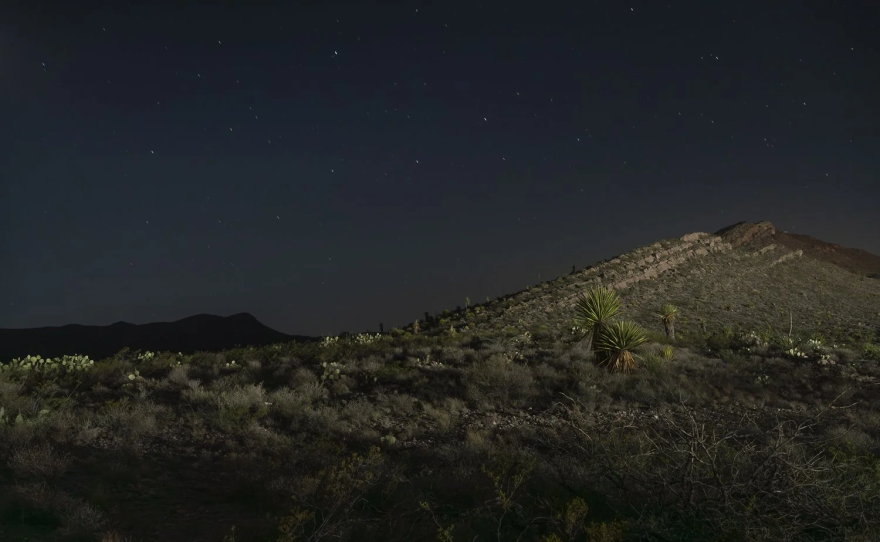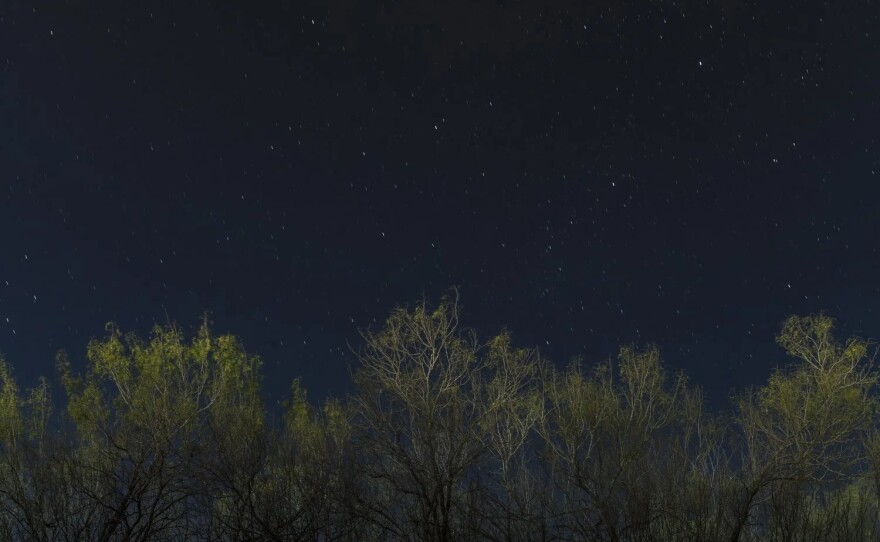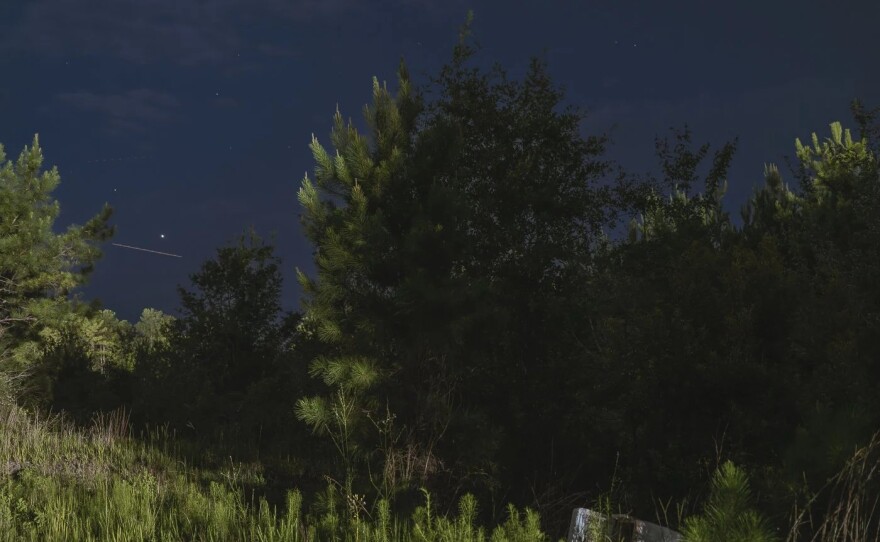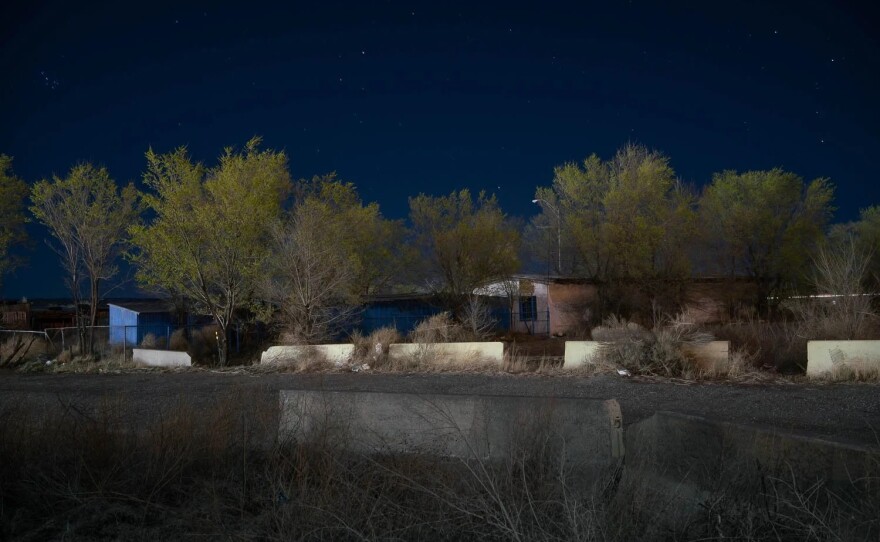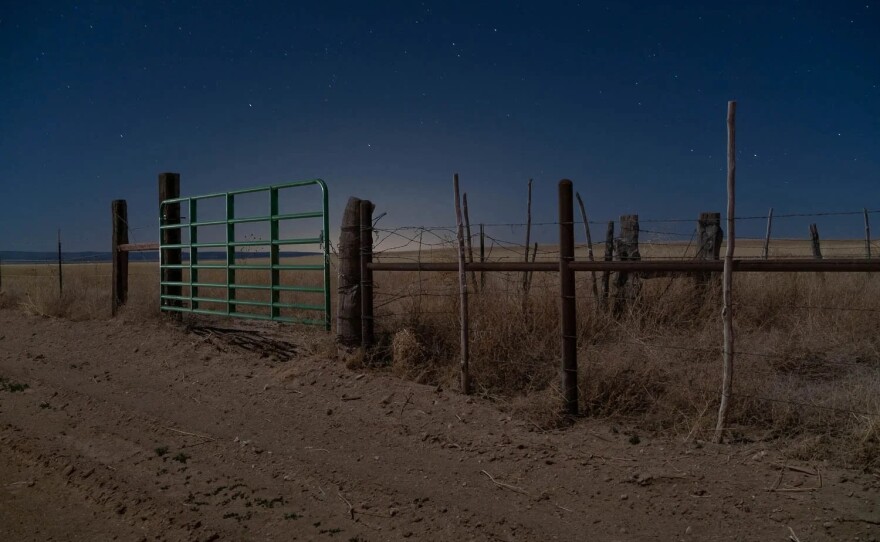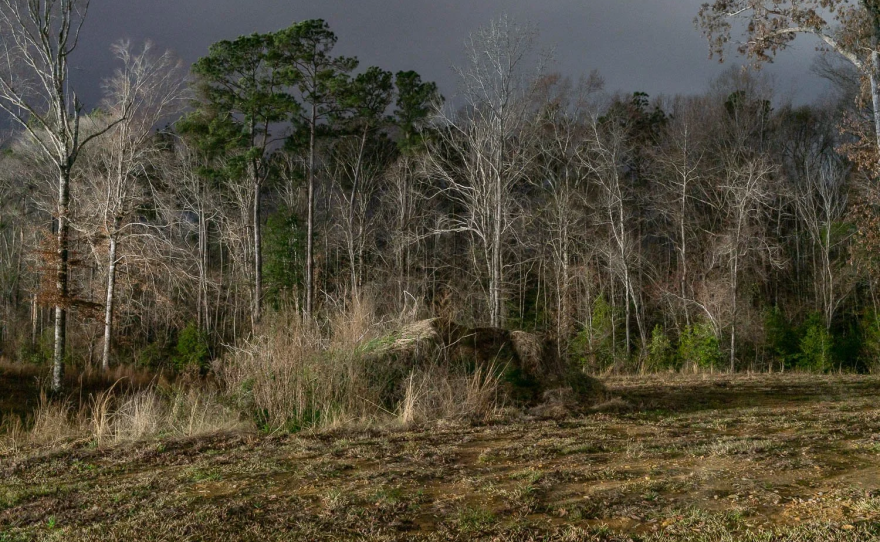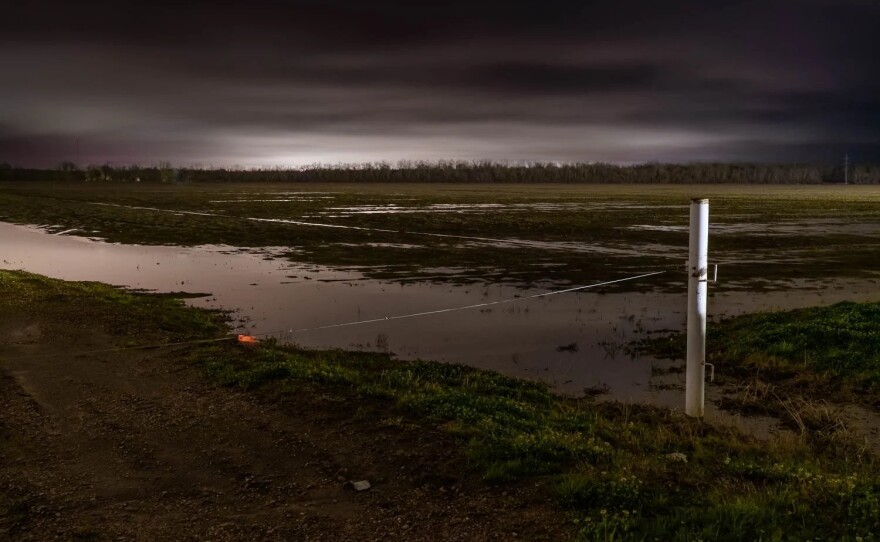There are over 130 U.S. Immigration and Customs Enforcement detention centers covering at least 38 states, according to online figures from ICE.
Hundreds more facilities across the country also act as detention centers, including hotels, hospitals, and jails.
These centers — which house the nearly 65,000 people currently being held in ICE detention — are brightly lit with LED lights at all hours of the day, impacting the dark skies that are prized by many rural towns.
Photographer Marni Shindelman began the project Restore the Night Sky to document the effects of light pollution at 45 private ICE detention centers across the U.S. The photographs don’t show any of the facilities — only the landscapes around them.

Shindelman said the project grew following the publication of sensationalized images of immigrant children being separated from their families.
“We’ve become really desensitized to these types of images,” she said. “I wanted to have images you might linger on longer and that didn’t exploit people. (It’s) my story of what I see, as opposed to the story that one news reporter might see who’s out at night.”
Shindelman said the ultimate goal upon completing the project is to eventually showcase these images in an exhibit.
“(These) exhibitions really touch people and they can see these really beautiful images,” she said. “But also, (people) can really think about and spread the word of what’s happening at our border and what’s happening to people really seeking asylum in our country.”


